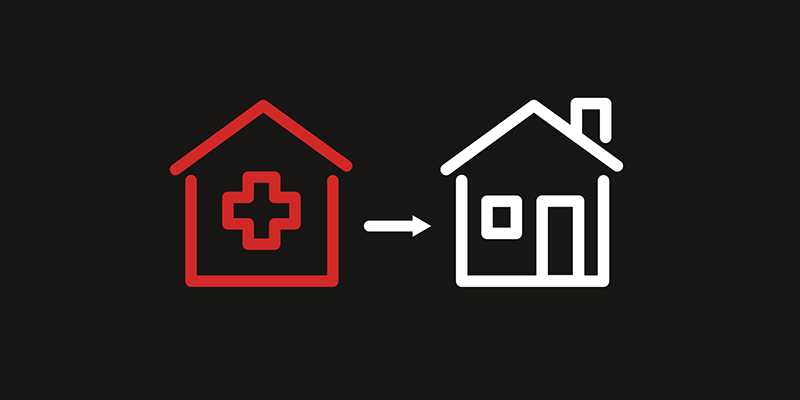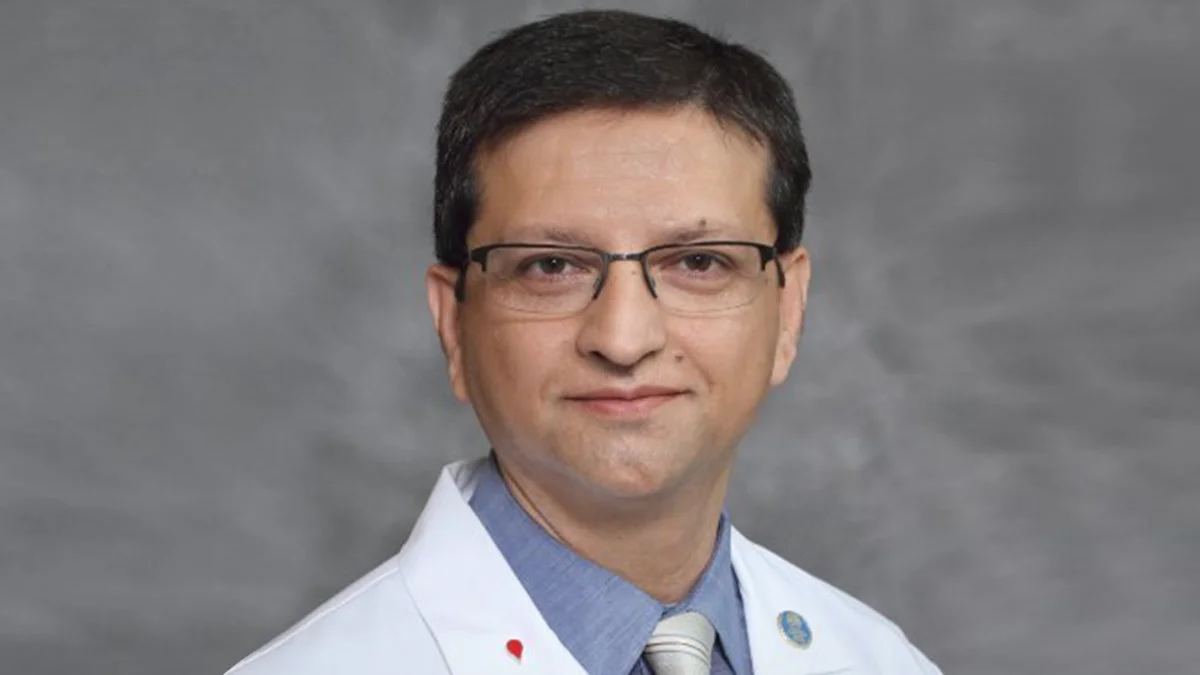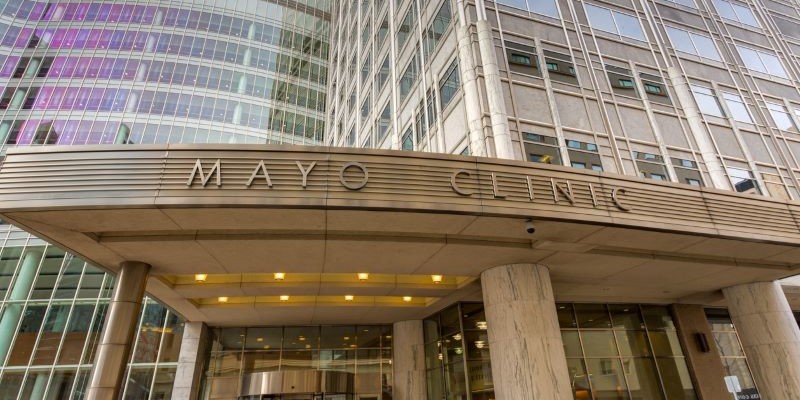
Emerging scientific evidence indicates that complex immunotherapeutic interventions such as chimeric antigen receptor (CAR) T-cell therapy can be safely administered on an outpatient basis at specialized medical centers. This is a significant shift from previous clinical practices that necessitated inpatient management, predominantly at tertiary academic medical centers.
Paving the Way
Early on in research, CAR T-cell therapy was only administered in the inpatient setting. Concern about the occurrence of adverse events (AEs), such as cytokine release syndrome (CRS) and immune effector cell–associated neurotoxicity syndrome (ICANS), kept registration trials in inpatient settings. Over the years, more understanding of toxicity management and an overall decrease in the incidence of high-grade toxicity opened the door to studies of outpatient CAR T-cell therapy administration.1
In 2021, Gatwood et al1 proposed an outpatient cellular therapy workflow designed to optimize support for patient needs, including managing emergencies and properly monitoring their status. Feasibility of the outpatient approach was demonstrated in 2022 by McGann et al2 in a real-world study, catalyzing countless protocols of outpatient CAR T-cell therapy across various blood cancers.
Redefining Treatment
Data to support the feasibility of CAR T-cell therapy administration at specialized medical centers, utilizing the outpatient monitoring model, were published in Blood Advances. The phase II OUTREACH clinical trial (NCT03744676) is the largest known prospective clinical trial to study the use of CD19-directed CAR T-cell therapy in outpatients with relapsed or refractory large B-cell lymphoma (LBCL). Previously, outpatient outcomes were reported only from single-center programs.
Primary endpoints for the OUTREACH study included the occurrence of grade ≥3 CRS, neurologic events (NEs), prolonged cytopenia. and infections. Efficacy was a secondary endpoint. The nonrandomized study examined patient-reported outcomes and health-related quality of life to determine whether these factors were preserved during treatment.
The study’s population included 82 patients who received lisocabtagene maraleucel (liso-cel) at 18 sites across the US: 57 patients (70%) were monitored as outpatients, and 25 (30%) were followed up as inpatients upon receipt of liso-cel. More than half the patients were age 65 or older, and more than 90% had disease that was refractory to previous therapy. The median follow-up was 10.6 months.
Liso-cel treatment, whether provided in an outpatient or inpatient setting, demonstrated high, durable responses and manageable safety. The objective response rate was 80% (95%CI, 70.3%-88.4%). Overall response rates were similar between outpatients (82%; 95% CI, 70.1%-91.3%) and inpatients (76%; 95% CI, 54.9%-90.6%). The complete response rate was 54% (95% CI, 42.3%-64.7%), which is similar to response rates in the TRANSCEND, PILOT, and TRANSFORM studies performed with outpatients at academic medical centers.3
Among the safety results, grade ≥3 CRS was not observed in any outpatients, and NEs were not reported in 12% of outpatients and 4% of inpatients; infections occurred in 12% of outpatients and 8% of inpatients. The most common complication of CAR T-cell therapy in the study was prolonged cytopenia, which was reported in 33% of outpatients and 32% of inpatients.
No hospitalizations were reported after liso-cel infusion for 25% of the outpatient population. However, 32% of outpatients were hospitalized at 72 hours after the day of infusion or sooner. The median initial hospitalization duration after liso-cel administration was 6.0 days (range, 1-28) for outpatients and 15.0 days (range, 3-31) for inpatients. During study follow-up, the median duration of all hospitalizations, including multiple stays, was 7.0 days (range, 0-67) for outpatients and 16.0 days (range, 6-64) for inpatients.
In general, inpatients in the OUTREACH study had higher disease-risk characteristics, such as a higher tumor burden and risk of AEs, complicated comorbidities, or other reasons that prevented them from being good candidates for outpatient care, such as lack of caregiver support. The overall safety results in OUTREACH were similar to results shown in the JULIET study, which assessed the efficacy and safety of another CD19-directed CAR T-cell therapy, tisagenlecleucel, for the treatment of patients with relapsed or refractory LBCL after two or more lines of therapy.
The OUTREACH trial did not require participating facilities to be certified by the Foundation for the Accreditation of Cellular Therapy (FACT), and 44% did not have FACT accreditation, but it did mandate that the centers have phase I or hematopoietic stem cell transplant capabilities. In addition, 72% of the centers had not provided CAR T-cell therapy before the study.2
The study showed that for appropriate candidates, outpatient CAR T-cell treatment is feasible and safe when delivered at specialized community medical centers with a multidisciplinary team trained in CAR T-cell toxicity management.
Envisioning the Future
The ability to provide such sophisticated care on an outpatient basis at community medical centers increases accessibility to cellular therapy. To date, issues such as the high cost of care are already a barrier to receipt of CAR T-cell therapy,4 and the cost of outpatient care is typically lower than that of inpatient care, reducing the financial burden on patients and the health care system. In addition, provision of care on an outpatient basis would benefit patients in rural or underserved communities, since these individuals often experience delays in care due to limited access, which can lead to poorer outcomes.
Once the oncology community can combat problems with access to CAR T-cell therapy, and as care for patients with blood cancers continues to evolve with new CAR T-cell agents, oncologists are hopeful that remission can be prolonged and new strategies to help patients overcome resistance mechanisms can be identified.
References
1. Gatwood KS, Dholaria BR, Lucena M, Baer B, Savani BN, Oluwole OO. Chimeric antigen receptor T-cell therapy: challenges and framework of outpatient administration. EJMHaem. 2021;19;3(suppl 1): 54-60. doi:10.1002/jha2.333
2. McGann M, Davis JA, Gaffney KJ, et al. Real-world experience and optimization of outpatient chimeric antigen receptor T cell therapy. Transplant Cell Ther. 2022;28(9):583-585. doi:10.1016/j.jtct.2022.06.021
3. Linhares Y, Freytes C, Cherry M, et al. OUTREACH: phase 2 study of lisocabtagene maraleucel as outpatient or inpatient treatment at community sites for R/R LBCL. Blood Adv.2024;8(23):6114–6126. doi:10.1182/bloodadvances.2024013254
4. Khan AN, Asija S, Pendhari J, Puwar R. CAR-T cell therapy in hematological malignancies: where are we now and where are we heading for? Eur J Haematol. 2024;112(1):6-18. doi:10.1111/ejh.14076






 © 2025 Mashup Media, LLC, a Formedics Property. All Rights Reserved.
© 2025 Mashup Media, LLC, a Formedics Property. All Rights Reserved.